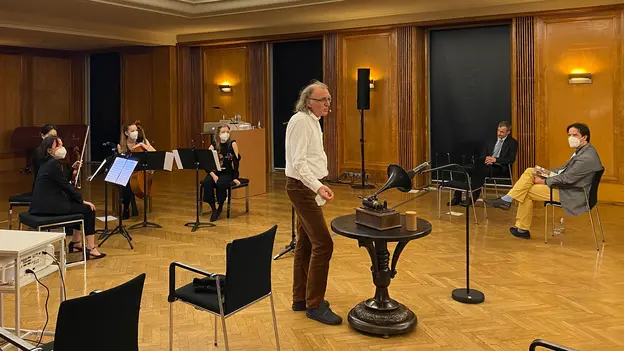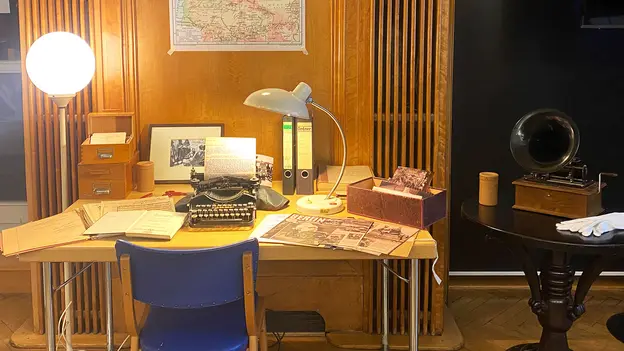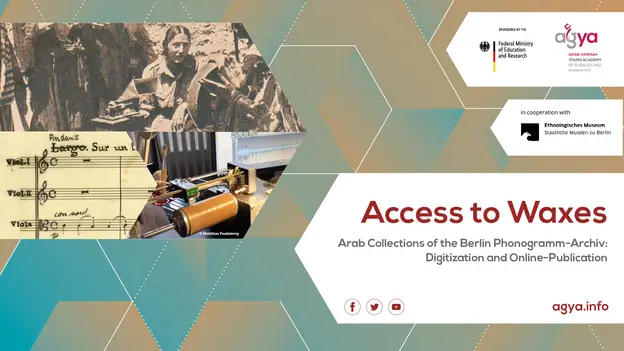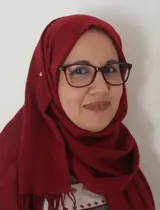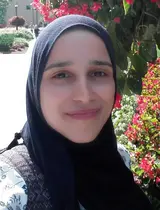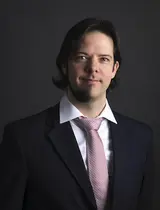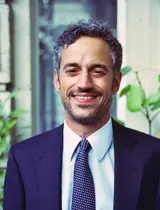Working Group Project
Access to Waxes – Arab Collections of the Berlin Phonogramm-Archiv
Workshop
The workshop ‘Access to Waxes’ centered the Arab collections of the Berlin Phonogramm-Archiv (PA), which is part of the UNESCO Memory of the World Program (World Documentary Heritage). The collections consist of historic field recordings of chants, music as well as linguistic material from different Arab regions including Tunisia, Egypt, Palestine as well as the Gulf region. Potential paths to enhance the access to these recordings are of increasing concern in academia and for the interested public. A particular focus was the collection of musicologist Dr. Brigitte Schiffer, containing recordings from between 1890 and 1935 engraved in wax cylinders from Siwa Oasis in Egypt.
In a letter to her former composition teacher in Germany, the ethnomusicologist and composer Brigitte Schiffer describes her rich impressions from a field research and recording trip to the Oasis Siwa in the Sahara in August 1932:
In the meantime I made the expedition to Siwa and I can say that this was the most beautiful week of my life. The journey through the desert alone - we covered 1400 km in the car - and then the three days in the oasis, surrounded by rich vegetation and ruins that bear witness to the oldest cultures - all this will remain unforgettable for all of us.
Later on, she transcribed the chants and instrumental music that she had recorded and wrote a PhD about local musical traditions of the oasis – and also a string quartet inspired by what she had heard in Siwa. Schiffer herself emigrated by 1935 to Egypt and stayed there for the next almost thirty years. Her recordings, the wax cylinders made with a phonograph, stayed in Berlin as part of the collections of the Phonogrammarchiv.
Voices of Siwa in the Einstein-Hall of the BBAW
In a festive opening ceremony, AGYA members Dr. Matthias Pasdzierny and Dr. Ikram Hili emphasized in their keynote that Dr. Brigitte Schiffer was a perfect role model for science diplomacy at her time and her recordings are the most suitable starting point for an Arab-German digitization and publication project. The speakers shed light on Schiffer’s biography between Germany and her emigration after 1935, showed examples from her PhD and how she transferred her recordings from the Siwa Oasis into a particular “Western” composition: Her string quartet (Quatuor a Cordes, 1934) was premiered at the event by the Berlin "Mixis Quartet". To set the legal framework, AGYA member Prof. Dr. Lando Kirchmair introduced the perspectives of law and international relations for the field recordings when accessing and publishing the wax rolls.
In their welcome addresses, Prof. Dr. Verena Lepper, AGYA Principal Investigator, Egyptian Museum and Papyrus Collection, Berlin, and Prof. Dr. Lars-Christian Koch Ethnologisches Museum, Humboldt Forum, Berlin, both underlined the importance of exchange and interdisciplinary cooperation to set common grounds for contemporary discussions on cultural heritage in a postcolonial context.
Albrecht Wiedmann, Ethnologisches Museum, Humboldt Forum, Berlin, took the audience on a journey through time into the sound world of the wax cylinders with a demonstration of an original phonograph from the Berlin Phonogrammarchiv. To grasp the atmosphere of working as an ethnologist and musicologist at the beginning of the 20th century, all guests were invited to take a seat at Brigitte Schiffer's staged desk, browse through archive material and listen to a selection of digitized recordings.
Following the public opening event, in a two-day workshop, the participants exchanged on a variety of topics ranging from Cultural Studies’ views on sensitive collections, ethnomusicologists’ perspectives on historical Arab collections as well as ethical & legal aspects and possible collaboration perspectives. Members of the Working Group Common Heritage and Common Challenges discussed with experts from the fields of ethnology, musicology, law, politics, philosophy, cultural studies, and media studies about a long-term strategy for digitization and open access publication of these collections.
Programme of the Opening Event:
Welcoming Addresses
AGYA Principal Investigator Prof. Dr. Verena Lepper, Egyptian Museum and Papyrus Collection, Berlin, Germany
Prof. Dr. Lars-Christian Koch, Ethnologisches Museum/Humboldt Forum, Berlin, Germany
Opening Speeches
AGYA member Dr. Nadia Bahra, University of Constantine 2, Algeria
AGYA member Dr. Lando Kirchmair, Bundeswehr University Munich, Germany
Albrecht Wiedmann, Ethnologisches Museum, Berlin, Germany
Keynote Lecture
“Sur un Theme de L’Oasis Siwa” – Brigitte Schiffer and her Sahara recordings, 1932/33
AGYA member Dr. Matthias Pasdzierny, Berlin-Brandenburg Academy of Sciences and Humanities (BBAW), Germany
AGYA member Dr. Ikram Hili, University of Sousse, Tunisia
Phonograph Demonstration
Wax Cylinder Recordings – Oasis Siwa, Egypt
Albrecht Wiedmann, Ethnologisches Museum, Berlin, Germany
Musical Delights
Brigitte Schiffer: Quatuor a Cordes (1934)
Mixis Quartet, Universität der Künste (UdK)/Hochschule für Musik Hanns Eisler, Berlin, Germany
Interactive Installation and Listening Station
Take a Seat at the Ethnologist’s Desk
AGYA member Dr. Matthias Pasdzierny, Berlin-Brandenburg Academy of Sciences and Humanities (BBAW), Berlin, Germany
Composer Cya Bazzaz, Berlin, Germany
- Disciplines Involved
- Musicology, Literary Studies, Public Law, Archaeological Science
- Cooperation Partner
- Ethnologisches Museum Berlin/Humboldt Forum, Germany
- Event Date
- 2 - 4 December 2021
- Venue
- Online
- Humboldt Forum
- Project Title
- Access to Waxes: The Arab Collections of the Berlin Phonogramm-Archiv: Interdisciplinary Perspectives on Digitization and Open Access Publication
- Year
- 2021
- Funding Scheme
- Working Group Project
- Working Group
- Common Heritage and Common Challenges
- Countries Involved
- Germany, Algeria, Austria, Tunisia
- AGYA Publication
- Digitalisieren und zugänglich machen!
- Access to Waxes – The Collections from the Arab World of the Berlin Phonogramm-Archiv: Between Digitization, "Repatriation," and Online Publication
- Whom to Remember – How to Return? Brigitte Schiffer, the Voices of Siwa and the Entangled History of the Berlin School of Ethnomusicology
- Access to Waxes - The Collections from the Arab World of the Berlin Phonogramm-Archiv
- Open Access Publication of the Historical Sound Recordings of the Berlin Phonogramm-Archiv
